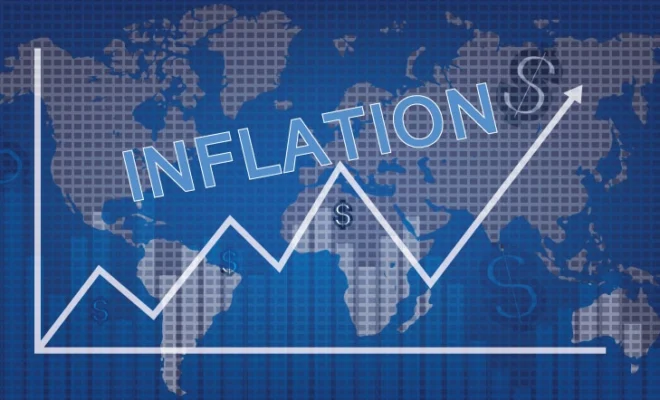Should COVID-19 Change Your Long-Term Strategy?
The short-term implications of the coronavirus pandemic have begun to show its effects across the globe in all realms, including the financial and investment sectors. Meanwhile, the bigger question in front of investors is whether to make modifications to long-term investment strategies or not. It is not possible to predict the impact that this crisis can leave on the world economy. This is a one-of-its-kind disaster, and there is no set trend that the economy is likely to follow. It is still too early to realize the severity of the consequences. Thus, a practical move for investors could be to make precautionary changes in their long-term strategies.
Table of Contents
Changes in Long-Term Investment Strategies
With the coronavirus crisis leaving its adverse impact on financial markets, it has become imperative to make certain amendments to long-term investment plans. The intent of these alterations should ideally be towards enhancing the stability and security of the portfolio.
Here are some such modifications that can be made to achieve the desired outcome:
1. Boost preservation assets
Investors can consider allocating funds under preservation assets like high-quality fixed income instruments in their portfolio. This income acts as the unallocated capital that an investor has in hand and can be invested in a suitable financial instrument at the right time. These funds remain committed for investment that can be useful to take maximum advantage of market opportunities, as and when they arise. With market volatility at its peak, it is suggested to retain preservation assets and wait for the right time to invest the money to maximize profits.
2. Enhance liquidity
With financial markets under major turmoil, investors might consider boosting their liquid reserves. Having cash in hand is an important part of financial freedom. In the long-term even if markets crash or banks go bankrupt, cash may be one of the safest modes of maintaining funds. Though it is usually not advised to keep high cash volumes since it eventually reduces the value of money, but at this time of crisis, cash might come around as a secure option. The cash reserve can be equivalent to the amount of money the investor plans on withdrawing from their portfolio in the coming 1-3 years. This level of liquidity allows one to absorb long-lasting market stress.
3. Purchasing prospects
A seemingly profitable long-term investment prospect is putting money into stocks of oil and the manufacturing sector. The primary reason behind this is the anticipation of the commencement of this sector’s resurgence after the major disposal of stocks. Another sector to consider for purchasing opportunities that may be profitable in the long-term is pharmaceuticals and other industries associated with sanitization and vaccination. However, over-investing in these stocks can also pose problems. This is because the coronavirus epidemic is still too novel to predict the possible long-term impact on stock values.
4. Reduce risk tolerance
With this level of volatility surfacing across all financial markets, it is suggested that investors keep their risk tolerance levels at a minimum. This may not be the right time to display any acceptance for risks or invest in any risky instruments. If existing long-term investments involve a high level of risk, they may need to be disposed of before the money is lost. However, investments in reliable sectors and companies can be retained since they are likely to revive from this economic crisis.
5. Alleviate transaction costs
Another long-term modification that may require attention is reducing the number of transactions in the stock market. There are several costs associated with each purchase or sale that is made at the stock exchange. These costs include transaction fees, commission, and eventually tax on capital gains. One may need extra caution to refrain from undertaking unnecessary transactions based on short-term movements in stock values. At this time any movement is not indicative of the company’s performance, but of the economy as a whole.
6. Equity investment only for the long-term
Investors can be advised to concentrate on investing in the equity market with a long-term view. Systemic investment plans (SIPs) in mutual funds can be an effective approach. Though their value may be falling drastically, financial experts recommend not only to retain these plans but also to invest more in them to boost returns in the long run. Those who do not have SIPs in their portfolios can think about investing in them now. However, the investment should be based on the quality of the stock rather than the low net asset value (NAV). Moreover, investments in large and multi-cap funds and large-cap-biased midcap funds can be more beneficial. Investors can also use these volatile market conditions to dispose stocks that have constantly failed to meet their targets.
7. Boost gold investment
Gold is a considerably safe investment option even during an economic crisis since this metal price has witnessed stability and growth even in uncertain times. Amid market volatility, gold is a strong investment instrument and can constitute 5-10% of the entire portfolio. There are several ways in which money can be invested in gold. First, the investor can opt for the conservative option of buying gold in the form of bars or coins. Gold jewelry can also be considered as an investment. Secondly, investors can purchase gold futures or options on the gold ETF. Thirdly, a more liquid and cost-saving option is the purchase of commodity-related mutual funds and exchange-traded funds (ETFs). These funds follow the movement of the price of gold. Moreover, unlike gold bullion, there is no transaction fee, storage cost, or insurance expenses involved in this option. Each ETF is equivalent to one-tenth of an ounce of gold. Finally, investment in the shares of companies involved in gold mining can also be considered.
8. Selective real estate investment
Real estate is generally bought for residential purposes or commercial renting. However, social distancing norms are likely to eliminate the requirement for office spaces, hotels, restaurants, etc. On the brighter side, companies endeavoring to adjust their business activities around the COVID-19 pandemic might require additional space to set up data centers, warehouses, logistic facilities, mobile towers, etc. Keeping these factors in mind can help investors in their decision to purchase real estate in the coming years.
To sum it up
The COVID-19 pandemic has created uncertainties not only in terms of health but also in investment planning. This may be a time to make changes in long-term investment strategies. The primary reason for this is the novelty of the crisis. There are not many past events that can be used to determine future trends in financial markets. In addition to this, analyzing the existing market scenario to make the necessary changes in strategies can be a complex task. An experienced and knowledgeable financial advisor can help in such times.
With professional expertise in the field, a financial advisor can help you achieve equilibrium between the volatility of the financial markets and your investment strategies.

















